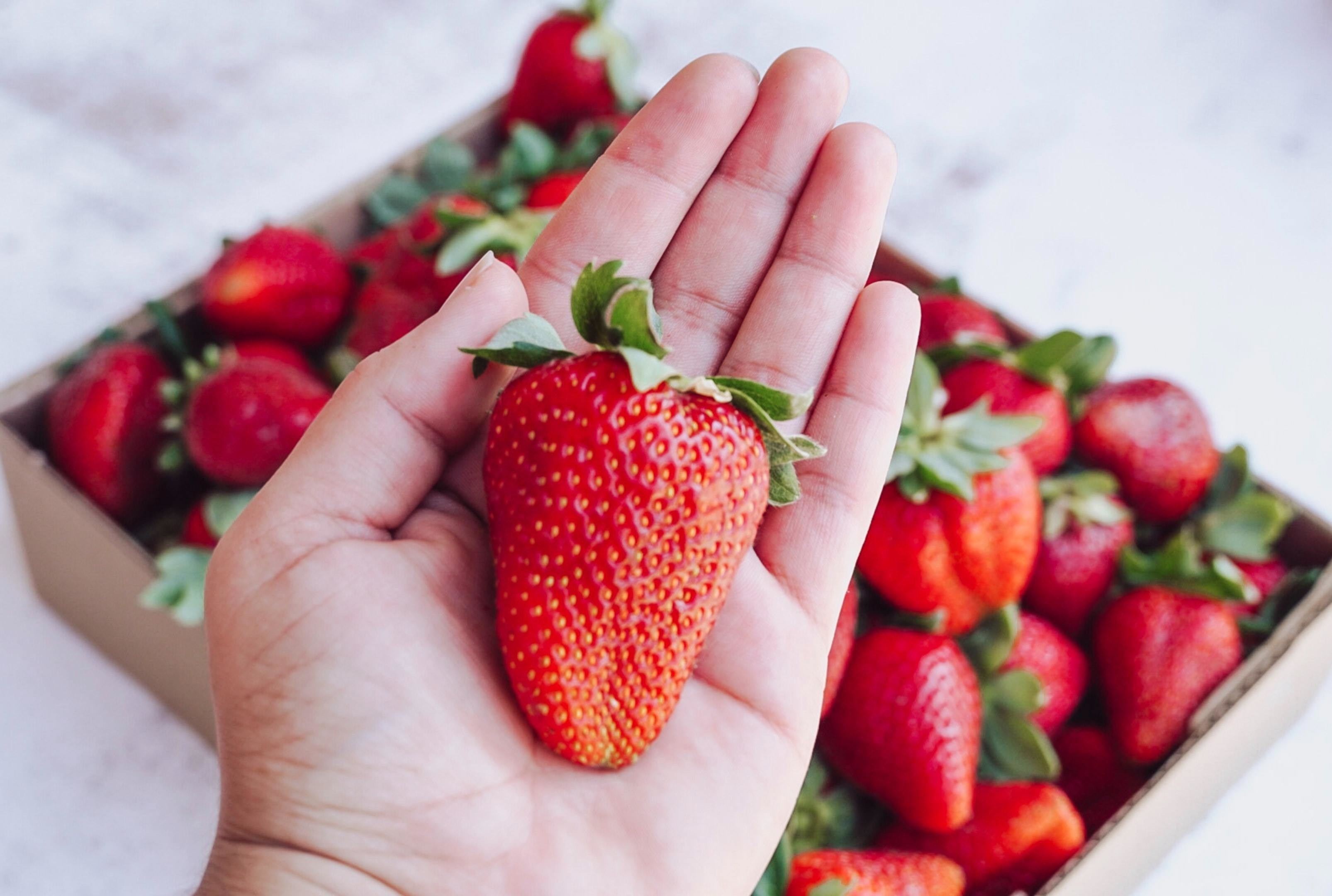Here's what happened when AI and humans met in a strawberry-growing contest

Do they really need a human touch? Image: Unsplash/Thalia Ruiz
- In Pinduoduo’s Smart Agriculture Competition, four technology teams competed with traditional farmers over four months to grow strawberries.
- Data analysis, intelligent sensors and greenhouse automation helped the scientists win.
- Fourth Industrial Revolution technologies such as AI are forecast to deliver huge productivity gains – but need the right governance, according to the Global Technology Governance Report 2021.
Strawberries can be easy to grow – especially, it seems, if you’re an algorithm.
When farmers in China competed to grow the fruit with technology including machine learning and artificial intelligence, the machines won, by some margin.
Data scientists produced 196% more strawberries by weight on average compared with traditional farmers.
The technologists also outperformed farmers in terms of return on investment by an average of 75.5%
The inaugural Smart Agriculture Competition was co-organized by Pinduoduo, China’s largest agri-focused technology platform, and the China Agricultural University, with the Food and Agriculture Organization of the United Nations as a technical adviser.

Sweet success
Teams of data scientists competed over four months to grow strawberries remotely using Internet of Things technology coupled with artificial intelligence (AI) and machine learning-driven algorithms.
In the competition, the technology teams had the advantage of being able to control temperature and humidity through greenhouse automation, the organizers said. Using technology such as intelligent sensors, they were also more precise at controlling the use of water and nutrients. The traditional farmers had to achieve the same tasks by hand and experience.
One of the teams, Zhi Duo Mei, set up a company to provide its technology to farming cooperatives after it generated a lot of interest during the competition.
The contest helped the traditional farmers and the data scientists better understand each other’s work and how they could collaborate to everyone’s advantage, the leader of the Zhi Duo Mei team, Cheng Biao, said.
Growing potential
Numerous studies show the potential for Fourth Industrial Revolution technologies like AI to boost economic growth and productivity.
By 2035, labour productivity in developed countries could rise by 40% due to the influence of AI, according to analysis from Accenture and Frontier Economics.
Sweden, the US and Japan are expected to see the highest productivity increases.

In its Future of Jobs Report 2020, the World Economic Forum estimates that by 2025, 85 million jobs may be displaced by a shift in the division of labour between humans and machines, while 97 million new roles may emerge that are more adapted to the new division of labour between humans, machines and algorithms.
What is the World Economic Forum doing about the Fourth Industrial Revolution?
Emerging technologies including AI and drones will also play a vital role in helping the world recover from COVID-19, according to a separate Forum report compiled with professional services firm Deloitte.
The Global Technology Governance Report 2021 considers some of the most important applications for these technologies – and the governance challenges that should be addressed for these technologies to reach their full potential.
Don't miss any update on this topic
Create a free account and access your personalized content collection with our latest publications and analyses.
License and Republishing
World Economic Forum articles may be republished in accordance with the Creative Commons Attribution-NonCommercial-NoDerivatives 4.0 International Public License, and in accordance with our Terms of Use.
The views expressed in this article are those of the author alone and not the World Economic Forum.
Stay up to date:
Tech for Good
Forum Stories newsletter
Bringing you weekly curated insights and analysis on the global issues that matter.









